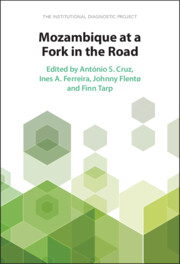The vital importance of institutions for economic development is widely acknowledged in both the theoretical and empirical literature. Institutions matter for growth and inclusive development. However, despite increasing awareness of the importance of institutions on economic outcomes, there is little evidence on how positive institutional change can be achieved. The precise nature of the relationship between the two is unclear: do ‘good’ institutions produce development, or does development lead to ‘good’ institutions? The Economic Development and Institutions (EDI) research programme aims to fill this knowledge gap by working with some of the finest economic thinkers and social scientists across the globe. The EDI programme was launched in 2015 and concluded in 2022, made up of four parallel research activities: path-finding papers, institutional diagnostic, coordinated randomised control trials, and case studies. Funded by the UK Foreign and Commonwealth Development Office (FCDO) (for more information, see http://edi.opml.co.uk), the institutional diagnostic component developed a framework that can help us understand better the nature of institutional impediments to development, and identify ways of attenuating them. In this Mozambique case study under the Institutional Diagnostic Project, the Development Economics Research Group at UCPH-DERG, in collaboration with Oxford Policy Management (OPM) and UNU-WIDER, carried out such a diagnostic of Mozambican institutions, which aims to identify weak institutional areas that restrict development and suggest appropriate directions for reform.
Few countries have experienced as many extreme political and economic changes as Mozambique both before and since independence in 1975. Despite an impressive growth performance after multiparty elections in 1994, the pattern of growth in Mozambique is fragmented, not sustainable and non-inclusive. This situation reflects low productivity growth in agriculture, lack of diversification, and a low level and pace of structural transformation. At the same time, the reduction of poverty has, after sharp drops from the mid-1990s, been rather slow and accompanied by increasing inequality. With the discovery of oil and gas in the early 2000s, focus has turned to the future of extraction of natural resources and the challenges of ensuring that it generates a positive impact on the Mozambican economy. The country now finds itself at a fork in the road. Critical choices have to be made as to whether to remain on the present path which will lead to increasing inequality, further regional imbalances, and possibly armed conflict or alternatively use the expected gas revenues effectively for poverty reduction, in a process where agricultural development, agro-industry, and labour-intensive private sector advancement are central.
The diagnostic of institutions in Mozambique proceeds in several stages. We start by compiling an overview of the historical and political context and of the performance of Mozambique in different socio-economic dimensions. We then complement this background with an analysis of institutional indicators from existing datasets, as well as with the implementation of a quantitative questionnaire and a series of key informants’ interviews, both aimed at gathering the perceptions of people in Mozambique on the institutional constraints to economic development in the country. This serves as a stepping stone to identifying a series of critical areas for further analysis in eight thematic chapters on which we draw in developing our institutional diagnostic.
Our synthesis shows that the combination of a complex set of deep factors leads to crucial institutional bottlenecks, which have undermined economic development. Sectors that are critical for sustainable and inclusive growth, such as agriculture, receive low priority, and frequent shocks in strategic policy direction result in the absence of a clear national development vision. The lack of separation of powers obstructs effective law enforcement and public financial management. Citizens’ trust in government and effective government accountability are negatively affected by lack of voice and a weak political opposition. In parallel, the potential risks associated with a very large extractive sector are beginning to influence socio-economic development. Finally, a process of change from being highly dependent on foreign aid to more complex international interactions, including powerful foreign investors, is unfolding. We end the volume with proposals for reform, which we hope will contribute to national debate and reflection on the way forward in Mozambique.



